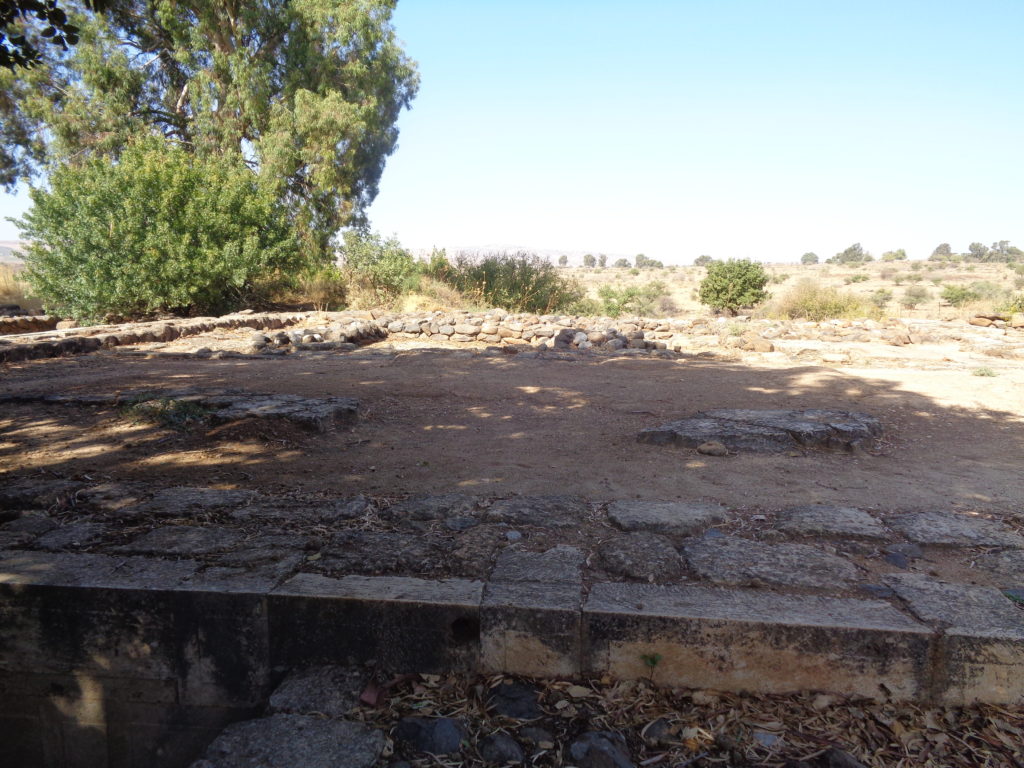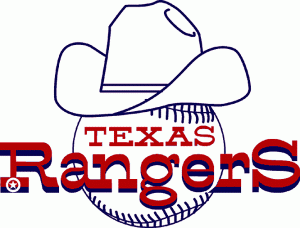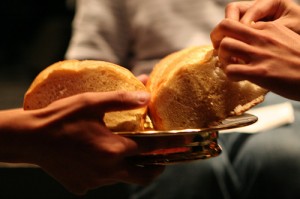Lots of Christians believe that once they repent and confess Jesus as Lord and begin living in the righteousness of God, nothing bad should ever happen to them again. Christians should not have accidents or arguments with spouses, they should not be misunderstood at work or talked back to by their children. No problems, no pains, no setbacks, no sins, no issues.
Even Christians who don’t believe that sometimes talk like they do. Too blessed to be stressed!
So, when something does go wrong, some Christians don’t handle it very well. Maybe a doubt creeps into your head. Maybe a loneliness moves into your soul. An illness puts you in the hospital or an argument lands you in the doghouse. A misunderstanding leads to anger and pain. A person walking in the way of faith gets into trouble and starts looking for help.
“I lift up my eyes to the hills — where does my help come from?” ~Psalm 121:1
What does this person see on the hills? What’s happening on the hills?
The pagan religions were practiced on the hills. That’s where the pagan gods were worshiped. The high places on the hills are where the nations built their altars to Ba’al and erected their shrines to Asherah. People went to the hills to engage in acts of idol worship they believed would ensure their safety or fix whatever is wrong. You worshiped the pagan gods on the hills to enhance the fertility of your livestock and crops. The pagan rituals would keep you safe from invading armies. The religious formulas and good luck charms would make you wealthy and wise. It would protect you from evil.
Where do your eyes go when things get a little shaky? Who do you look to? Where do you put your trust when things go bad? There are all kinds of things we can look to for help besides God. And all those things are idols.
In the Bible, the hills are where the idols are worshiped. Hosea 4:12-13 and Ezekiel 6:13 are two of dozens of biblical references. 1 Kings and 1 Chronicles describe the high places where God’s people set up sacred stones and Asherah poles “on every high hill.” Think about the altars of Ba’al on the hills of Mount Carmel. Think about King Rehoboam who built his altar on the high place at Dan. Think about the hills of Caesarea Philippi where the temples and shrines were built to Pan and Ba’al and Asherah and where they worshiped Roman Emperors and sacred goats.
When you run into trouble or when something goes wrong, you holler help. And if you look to the hills, there it is! All kinds of help! Instant help!
Except for one thing: it doesn’t work. It’s an illusion. Nobody is ever really helped by what’s happening in the hills.
“We will come to you, for you are the Lord our God. Surely the idolatrous commotion on the hills and mountains is a deception.” ~ Jeremiah 3:23
If you think the next election is going to fix things, you’re looking to the hills. If you believe the next scientific breakthrough is going to heal things, you’re eyes are on the hills. If you think your next promotion or pay raise is going to put you over the top and fill the hole in your soul, you’re looking to the hills.
When you look to science, technology, or politics for help, you’re going to be disappointed. When you put your faith in the economy or your family, your education goals or your career plan, you’re going to be let down. When you try to ignore your pain or distract from your troubles with pills or drinks or vacations or sports or some kind of busyness, it just leads to more pain and more trouble.
“My help comes from the Lord, the Maker of heaven and earth.” ~Psalm 121:2
Your help comes from the Lord, not from what’s in the hills. You don’t need any supplemental insurance from what’s going on in the hills. When your loving Father is the Maker and Sustainer of the Universe, you don’t need your safety or security to come from the hills.
“The Lord will keep you from all evil — he will watch over your life.” ~Psalm 121:7
That doesn’t mean you’re never going to stub your toe. No one gets out of this life without the experience of pain. The promise is that no injury or accident, no illness or distress, no tragedy, nothing that can ever happen to you will have evil power over you. Nothing can ever happen to you that can separate you from God’s purpose for you.
That’s the Lord’s Prayer. That’s the expectation. “Deliver us from evil.” That prayer is answered for you every day. Sometimes several times a day.
Take your eyes off the hills and place them directly on the God of Heaven and Earth who says, “I have made you and I will carry you; I will sustain you and I will rescue you.” Fix your eyes on Jesus, the author and perfecter of our faith, who says, “In this world you will have trouble; but take heart, I have overcome the world!”
Peace,
Allan







Recent Comments